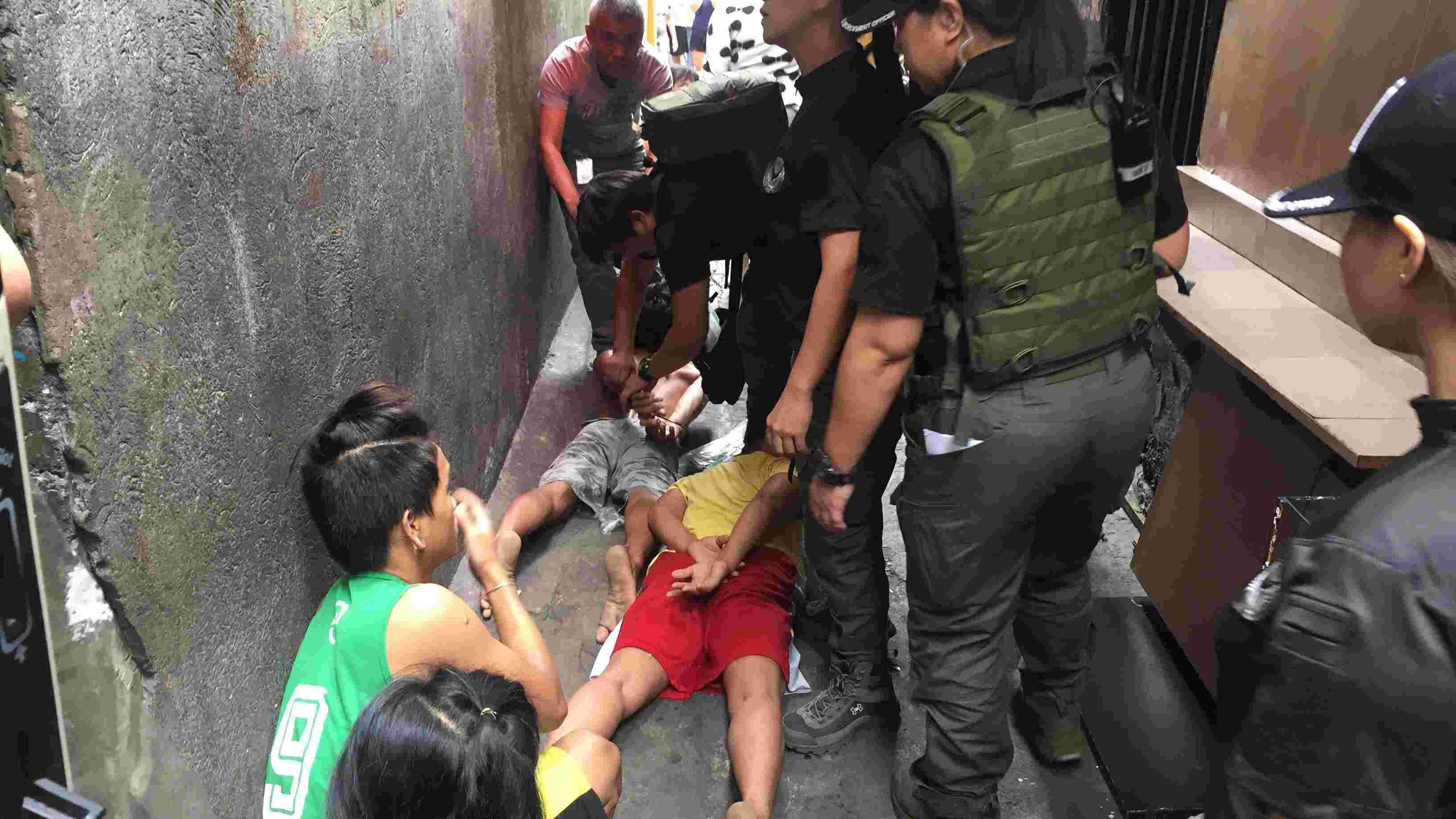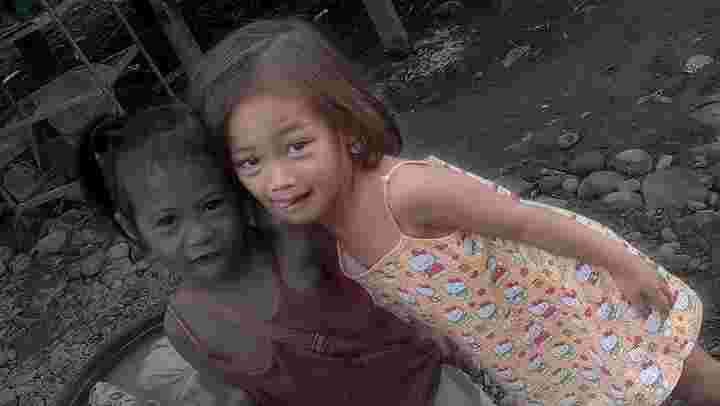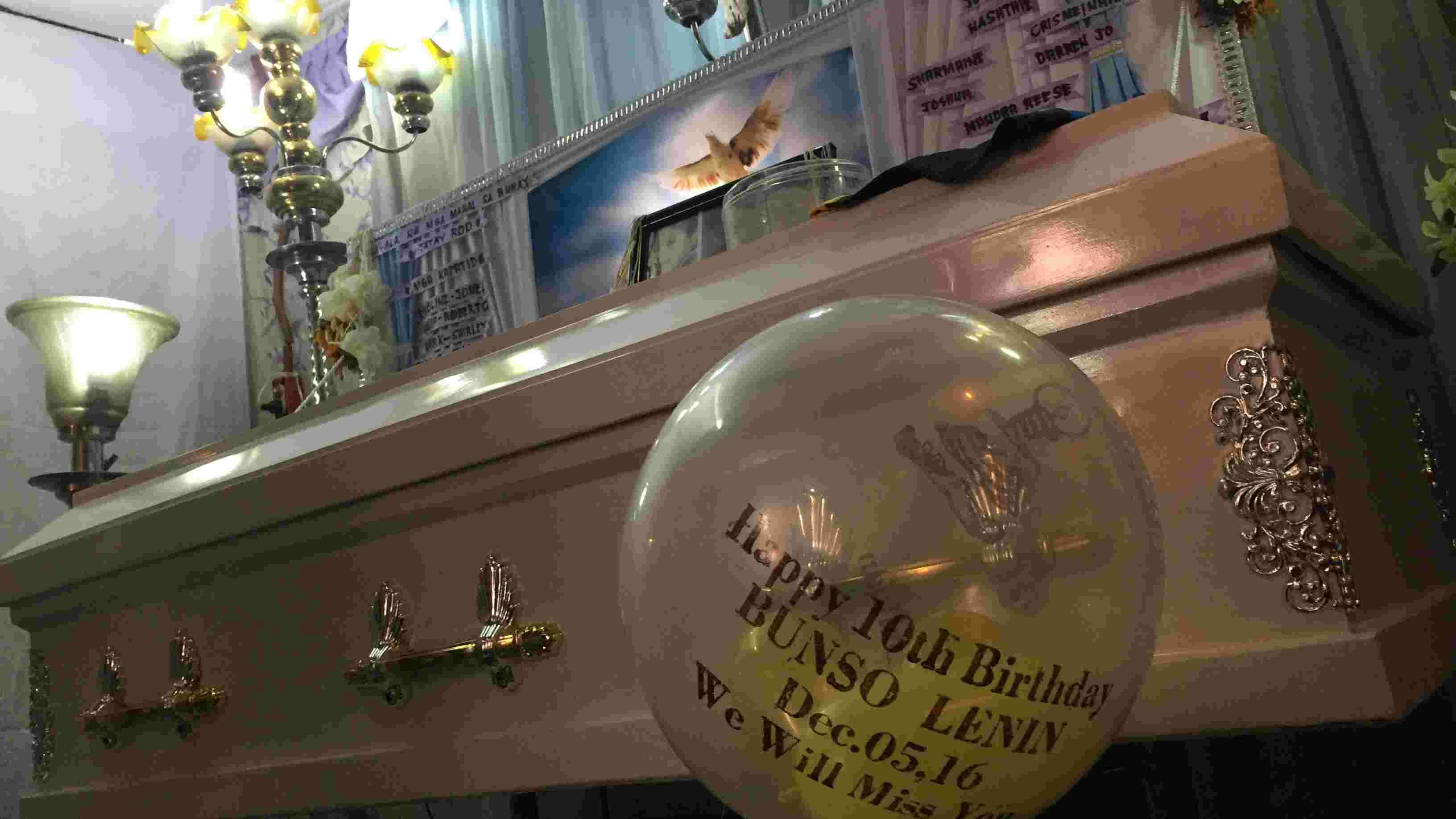
Politics
10:39, 21-Sep-2017
The Year of Living Dangerously: Covering Duterte's war on drugs - Part 3
Barnaby Lo

- Part Three -
Every now and then, Philippine President Duterte makes it a point to emphasize cops sacrificing their lives in the name of his war against illegal drugs. Two to three of them die every day, he has repeated a number of times. But according to police figures, from July 1, 2016, to July 26, 2017, only 68 law enforcers were killed, or two every 10 days.
The string of teenage deaths at the hands of police felt like a tipping point. In fact, even before the recent uproar, minors – suspected drug users, dealers and innocent ones – were already getting killed.

Danica Mae Garcia, 5-years-old was caught in the middle of a crossfire against the war on drugs. /CGTN Photo
Danica Mae Garcia, 5-years-old was caught in the middle of a crossfire against the war on drugs. /CGTN Photo
Like Domingo Mañosca’s five-year-old son, Francis, who was shot along with his father in their home just before Christmas last year, five-year-old Danica Mae Garcia was just at the wrong place at the wrong time. Her grandfather, Maximo Garcia, was the target. He did suffer three gunshot wounds but while he survived, just one bullet ended Danica’s life.
At least 54 Filipinos under 18 years of age have been killed either by police or masked gunmen, according to data released by the Children’s Legal Rights and Development Center in July. And if they’re not getting killed, they’re becoming orphans.
Earlier this year, we met a 12-year-old girl and her 8-year-old brother, who together with eight other siblings, lost both their parents when gunmen opened fire on them. The young children witnessed their parents' murder.
“When they were done with my dad, I hugged my siblings. And then they went for my mom. They fired all the bullets they had left, that’s why she had more gunshot wounds,” 12-year-old “Hope” recounted to me.
President Duterte once described the death of children as collateral damage in his war against illegal drugs, a war he now admits is unwinnable.
“Others can’t do it. How can we? Those drugs, we can’t control them.”

Lenin Baylon was killed in crossfire as gunmen chased three suspected drug dealers, only 3 days before his 10th birthday. /CGTN Photo
Lenin Baylon was killed in crossfire as gunmen chased three suspected drug dealers, only 3 days before his 10th birthday. /CGTN Photo
Yet in the same breath, he insists on continuing his war on drugs, even if it means getting impeached. So the war goes on. No, the recent deaths of teenage boys and the ensuing outrage did not turn out to be a tipping point. Bodies keep piling. And justice for those who’ve lost loved ones may not come easy.
More than a hundred lawmakers in the Lower House of the Philippines Congress recently voted to fund the Commission on Human Rights (CHR) with a measly $20 budget. It was widely regarded as a move to paralyze or even dismantle the independent government body. The measure passed but senators vow to preserve ample funding for the CHR.
The agency that victims of alleged extrajudicial killings hope to rely on in their quest for justice is itself under attack. Many Filipinos allege it is biased toward defending the rights of criminals and have neglected the plight of victims of crime. But the CHR’s mandate is not to tackle or even prosecute crime – those are the functions of police and the justice department. The CHR was created primarily to protect citizens from state abuse.
Even members of the press like myself are under attack for giving what they say is too much voice to criminals. But who are we to say that they are criminals – they who’ve been killed without even a day in court? We’ve done our share of covering victims of crime in the past, even though many Filipinos fail to see this now. We will – and we have to – continue reporting on the killings because a killing, no matter who the victim is, is a crime.
Part One: The Year of Living Dangerously: Covering Duterte's war on drugs
Part Two: The Year of Living Dangerously: Covering Duterte's war on drugs - Part 2

SITEMAP
Copyright © 2018 CGTN. Beijing ICP prepared NO.16065310-3
Copyright © 2018 CGTN. Beijing ICP prepared NO.16065310-3